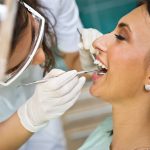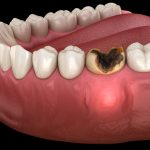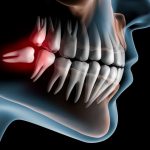Discover the Optimal Frequency for Teeth Cleaning: How Often Should You Visit the Dentist?

Oral hygiene is an integral part of maintaining good health, and regular dental visits are just as important as brushing and flossing. However, there is a long-standing debate about how often one should visit the dentist. Some people believe that a yearly check-up is sufficient, while others insist on more frequent visits. The truth is, there is no one-size-fits-all answer as the frequency of dental visits depends on several factors, such as age, medical history, and lifestyle. In this article, we’ll delve into the optimal frequency of teeth cleaning and explore how often you should visit the dentist to ensure your oral health is in top shape. It’s a common misconception that good oral hygiene only involves brushing and flossing. While these are essential, regular dental visits are just as crucial. Visiting the dentist allows for the detection and treatment of any oral problems, such as cavities, gum disease, and oral cancer, before they worsen. Furthermore, a dentist can provide preventive care, such as teeth cleaning, fluoride treatment, and dental sealants, to safeguard your teeth and gums from potential problems. Therefore, it’s essential to find the optimal frequency for teeth cleaning and dental visits to ensure you maintain good oral health and prevent any future complications.
Proper teeth cleaning is of utmost importance for maintaining good oral hygiene. Brushing twice a day and flossing daily is essential for removing plaque and food particles that can cause tooth decay and gum disease. Regular dental checkups and cleanings are also recommended to ensure that any potential problems can be detected early on and treated before they become serious. Neglecting proper teeth cleaning can lead to a buildup of bacteria, which can cause bad breath, cavities, and gum disease. In addition, poor oral health has been linked to a variety of other health problems, including heart disease and diabetes. Therefore, it is important to prioritize teeth cleaning as part of your overall health and wellness routine.
Dental cleaning procedures involve removing plaque, tartar, and other debris from the teeth and gums, as well as polishing the tooth surface. The process begins with a physical examination of the mouth to determine the overall health of the teeth and gums. Then, a dental hygienist will use a scaler to remove any buildup of plaque and tartar from the teeth, paying special attention to the areas around the gum line. Once the teeth are clean, the hygienist will polish them using a special toothpaste and a rotating brush. This helps remove any remaining stains and leaves the teeth feeling smooth and shiny. Finally, the dentist will review the cleaning and check for any potential issues that may require further attention. Regular dental cleanings are an important part of maintaining good oral health and should be done at least twice a year.
Factors That Influence How Often You Should Visit the Dentist
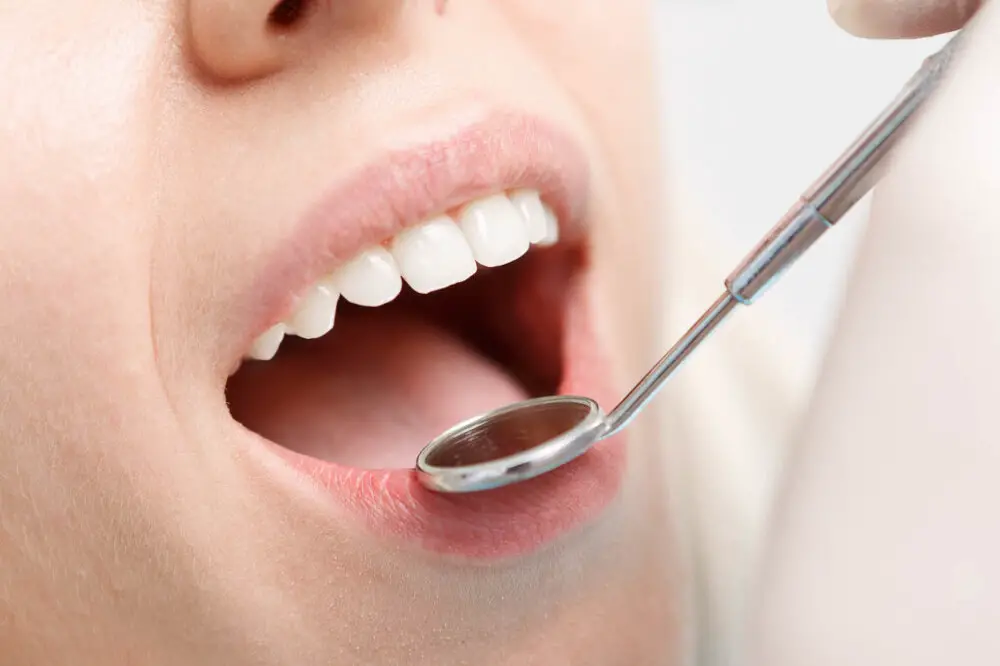
Regular dental check-ups are essential to maintaining good oral health, but the frequency with which you visit the dentist is influenced by a variety of factors. The American Dental Association (ADA) recommends that individuals visit their dentist at least twice a year for routine cleanings and check-ups. However, this recommendation may vary depending on your individual dental needs. One factor that may influence how often you should visit the dentist is your overall oral health. If you have a history of cavities, gum disease, or other dental issues, your dentist may recommend more frequent visits to monitor and address these concerns. Similarly, individuals who wear braces or other orthodontic appliances may need to visit the dentist more frequently to ensure that their teeth and gums remain healthy throughout treatment. Other factors that may influence the frequency of your dental visits include your age, lifestyle habits such as smoking or alcohol consumption, and any medications you may be taking that could impact your oral health. Ultimately, the optimal frequency for dental visits will depend on your unique circumstances and should be discussed with your dentist to ensure that you are receiving the appropriate level of care.
Age plays a significant role in determining how often an individual should visit the dentist. As we grow older, our teeth become more vulnerable to decay, gum disease, and other dental problems. Therefore, older adults should visit the dentist more frequently than younger individuals. Additionally, certain age-related medical conditions, such as diabetes and heart disease, can have a significant impact on oral health, making regular dental checkups even more critical. However, it’s important to note that dental needs can vary greatly from person to person, regardless of age. Therefore, it’s essential to work with your dentist to develop a personalized dental care plan that meets your unique needs and goals.
Oral health status depends on how well you take care of your teeth and gums. Brushing at least twice a day with fluoride toothpaste and flossing daily can help remove plaque and prevent tooth decay and gum disease. However, regular dental checkups are also crucial to maintaining good oral health. Dental professionals can detect and treat early signs of dental problems before they become more serious and costly to treat. The optimal frequency for teeth cleaning varies depending on individual needs, but it is generally recommended to visit the dentist every six months for a routine checkup and cleaning. By practicing good oral hygiene habits and scheduling regular dental appointments, you can ensure a healthy smile for years to come.
Medical conditions can greatly affect the frequency at which a person should visit the dentist. For those with diabetes, regular dental check-ups are important to prevent gum disease, which can worsen blood sugar control. Individuals undergoing cancer treatment may also require more frequent dental visits due to the potential for oral complications. Patients with heart disease, stroke, or other cardiovascular conditions may benefit from more frequent dental cleanings, as studies have linked gum disease to an increased risk of heart disease. Additionally, those with certain genetic conditions or autoimmune diseases may require specialized dental care to manage their oral health. Overall, it is important for individuals to discuss their medical history with their dentist to determine the optimal frequency for teeth cleaning and maintenance.
Lifestyle factors such as smoking, diet, and alcohol consumption can significantly impact oral health and hygiene. Smoking, for instance, can cause staining and discoloration of teeth, as well as increase the risk of gum disease and oral cancer. A diet high in sugar and processed foods can lead to cavities and decay, while excessive alcohol consumption can lead to dry mouth, which can cause bacteria to thrive and contribute to bad breath. Maintaining a healthy lifestyle that includes regular exercise, a balanced diet, and minimal tobacco and alcohol use can help promote oral health and reduce the need for frequent dental visits.
Recommended Frequency for Dental Cleanings

Maintaining good oral health by visiting the dentist regularly is crucial. The recommended frequency for dental cleanings is every six months for most people. However, individuals with specific dental conditions or a history of periodontal disease may require more frequent visits. Regular dental cleanings help remove plaque and tartar buildup, which can lead to tooth decay and gum disease if left untreated. Additionally, dental cleanings allow the dentist to identify any potential dental problems early on, preventing them from becoming more serious issues. It’s important to note that some individuals may require more frequent dental cleanings due to their lifestyle habits. For instance, smokers, individuals with high sugar intake, and those with poor oral hygiene may need to visit the dentist more frequently. Similarly, individuals with certain medical conditions, such as diabetes, may require more frequent dental cleanings to maintain good oral health. Ultimately, the frequency of dental cleanings should be determined by the individual’s specific dental needs and discussed with their dentist.
The American Dental Association (ADA) recommends that individuals visit their dentist at least twice a year for a routine check-up and cleaning. However, the frequency of dental visits may vary depending on an individual’s oral health needs. For instance, individuals with a history of gum disease, cavities, or other dental issues may need to visit their dentist more frequently. Regular dental check-ups and cleanings are crucial in preventing and detecting dental issues early on, which can prevent the need for more extensive and expensive treatments in the future. The ADA also recommends that individuals practice good oral hygiene habits at home, such as brushing twice a day and flossing daily, to maintain optimal oral health.
Apart from regular dental check-ups, there are several other professional recommendations that can help maintain optimal oral health. One such recommendation is to visit a dental hygienist for a professional teeth cleaning every six months. A dental hygienist is trained to remove plaque and tartar buildup that cannot be removed by regular brushing and flossing. Additionally, they can provide valuable information on how to improve your oral hygiene routine and identify any potential issues before they become more serious. Other recommendations include using fluoride toothpaste, eating a balanced diet, and avoiding tobacco products. By incorporating these recommendations into your oral health routine, you can help prevent cavities, gum disease, and other oral health issues.
Regular dental visits are crucial for maintaining good oral health. The optimal frequency for teeth cleaning may vary depending on the individual’s oral health, but in general, it is recommended to visit the dentist at least twice a year. During these visits, the dentist can perform a thorough examination of the teeth and gums, identify any potential issues, and provide preventative care to help avoid future dental problems. For those with more complex dental needs, such as those with gum disease or a history of cavities, more frequent visits may be necessary. By visiting the dentist regularly, individuals can take proactive steps towards maintaining a healthy smile and avoiding more serious dental issues in the future.
Signs That You Need to Visit the Dentist More Often

Regular dental visits are essential for maintaining good oral health. However, some people tend to neglect dental checkups, thinking that they can manage their dental health on their own. Unfortunately, this is not always the case, and skipping dental appointments can lead to severe dental issues. Here are some signs that indicate that you need to visit the dentist more often. Firstly, if you experience tooth sensitivity, it may be a sign of tooth decay, gum disease, or enamel erosion. A dentist can examine your teeth and gums, determine the root cause of the sensitivity, and recommend a suitable treatment plan. Secondly, if you have persistent bad breath, it may be an indication of an underlying dental problem, such as gum disease or tooth decay. A dentist can assess the situation and provide appropriate treatment and advice on how to prevent bad breath in the future. In addition to tooth sensitivity and bad breath, other signs that indicate that you need to see the dentist more often include bleeding gums, cavities, loose teeth, and jaw pain. Bleeding gums are usually a sign of gum disease, which, if left untreated, can lead to tooth loss. Cavities can also cause tooth loss, and if not treated, they can result in severe toothaches and infections. Loose teeth can be a sign of advanced gum disease, and jaw pain can be an indication of TMJ disorder. In conclusion, regular dental checkups are crucial for maintaining good oral health. If you experience any of these signs, make sure to visit your dentist as soon as possible to prevent further dental issues.
Bleeding gums is a common dental issue that many people experience, which is often caused by poor dental hygiene. When plaque and tartar build up on the teeth, it can cause inflammation and irritation of the gums, leading to bleeding when brushing or flossing. This can also be a symptom of gingivitis, an early stage of gum disease. If left untreated, gingivitis can progress to periodontitis, which can cause gum recession, tooth loss, and even bone damage. Regular dental cleanings and checkups can help prevent and treat bleeding gums, as well as ensure overall oral health.
Tooth sensitivity is a common dental problem that affects millions of people worldwide. It is characterized by a sharp and sudden pain in the teeth when exposed to hot, cold, sweet, or acidic foods and beverages. This condition occurs when the protective layer of the tooth enamel becomes thin or erodes, exposing the underlying dentin layer and nerve endings. Tooth sensitivity can be caused by a variety of factors, including gum recession, tooth decay, teeth grinding, and aggressive brushing. If left untreated, tooth sensitivity can lead to more serious dental problems, such as cavities, infections, and gum disease. Therefore, it is important to seek professional dental care to diagnose the cause of tooth sensitivity and receive appropriate treatment to prevent further damage to the teeth and gums.
Persistent bad breath or halitosis can be an embarrassing and concerning issue that affects many individuals. It can occur due to various reasons such as poor oral hygiene, gum disease, dry mouth, or even certain medical conditions. Neglecting this problem can lead to social isolation and low self-esteem. Regular dental check-ups can help prevent and treat bad breath. A dentist can identify the underlying cause of halitosis and provide appropriate treatment. Maintaining good oral hygiene, drinking plenty of water, and avoiding tobacco and alcohol can also help manage bad breath. It’s essential to address this issue early on to prevent it from affecting your overall health and quality of life.
In addition to regular dental cleanings, there are other oral health issues that individuals should be aware of. Gum disease, also known as periodontitis, can lead to tooth loss and has been linked to other health problems such as heart disease and stroke. Symptoms of gum disease include red, swollen gums that bleed easily and persistent bad breath. Another common issue is tooth decay, which occurs when bacteria in the mouth produce acid that eats away at the tooth’s enamel. This can lead to cavities, tooth sensitivity, and even tooth loss if left untreated. It’s important to maintain good oral hygiene habits, including brushing twice a day and flossing daily, to prevent these issues from occurring.
Benefits of Regular Dental Cleanings
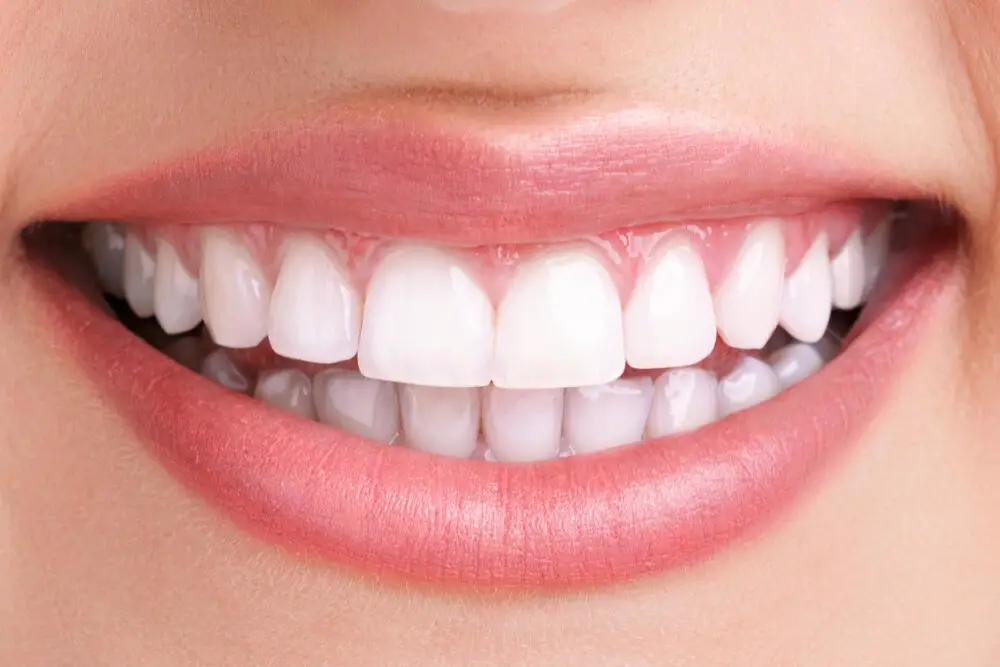
Regular dental cleanings are an essential part of maintaining good oral health. These cleanings help prevent dental problems such as cavities, gum disease, and tooth loss. Dental cleanings are performed by a dental hygienist who uses special tools to remove plaque and tartar buildup from your teeth. This buildup can lead to gum disease, which is a serious condition that can cause tooth loss if left untreated. Regular dental cleanings also help to prevent bad breath and keep your teeth looking their best. Another benefit of regular dental cleanings is that they can help detect early signs of dental problems. During your cleaning, the hygienist will examine your teeth and gums for any signs of decay, gum disease, or other problems. If any issues are detected, your dentist can take immediate action to prevent them from becoming more serious. Regular dental cleanings can also help to prevent more serious health problems such as heart disease and stroke. Research has shown that there is a link between gum disease and these serious health conditions. By maintaining good oral health, you can reduce your risk of developing these health problems.
Prevention of gum disease and tooth decay is crucial in maintaining good oral health. Regular brushing and flossing are essential in removing plaque and preventing the buildup of harmful bacteria that can lead to tooth decay and gum disease. It is also important to maintain a healthy diet and avoid sugary and acidic foods and drinks that can erode tooth enamel and contribute to the development of cavities. Visiting the dentist at least twice a year for routine checkups and cleanings is also recommended to detect any potential issues early on and prevent them from progressing into more serious problems. Taking these preventative measures can help ensure a healthy and happy smile for years to come.
Early detection of oral health issues is crucial in maintaining good dental health. Regular dental check-ups can help identify problems such as cavities, gum disease, and oral cancer at an early stage. This can lead to more effective and less invasive treatments and can prevent the need for more extensive procedures later on. In addition to regular dental visits, maintaining good oral hygiene practices such as brushing twice a day and flossing daily can also help prevent oral health issues from developing. By being proactive about your dental health, you can ensure that your teeth and gums remain healthy and strong for years to come.
Maintaining good oral hygiene is not only crucial for healthy teeth and gums, but it can also have a positive impact on overall health. Regular dental checkups and cleanings can help detect and prevent oral health problems, such as cavities, gum disease, and oral cancer. Untreated oral health issues can lead to more severe health consequences, including heart disease, stroke, and diabetes. Moreover, a healthy mouth can improve the ability to speak, eat, and smile with confidence, leading to a better quality of life. Thus, visiting a dentist regularly for checkups and cleanings can help improve overall health and well-being.
Cost savings in the long run can be achieved by regularly visiting the dentist to prevent dental problems from escalating into more complicated and expensive procedures. An optimal frequency for teeth cleaning can help maintain good oral health and prevent the need for costly treatments such as root canals or dental implants. Neglecting dental care can result in tooth decay, gum disease, and other oral health issues that require extensive and costly treatments. By visiting the dentist regularly, individuals can catch dental problems early on, preventing the need for more expensive procedures in the future. Therefore, investing in regular dental check-ups can ultimately save money in the long run and ensure optimal oral health.
Regular dental cleanings are vital for maintaining excellent oral hygiene and preventing dental problems such as cavities, gum disease, and bad breath. Even with consistent brushing and flossing at home, plaque and tartar can build up over time, leading to more significant issues if left untreated. A professional dental cleaning can remove these harmful substances and provide a deep clean that is difficult to achieve at home. Additionally, routine cleanings allow your dentist to identify and address any potential issues before they become more serious and require more extensive treatment. By scheduling regular dental cleanings, you can ensure that your teeth and gums remain healthy and beautiful for years to come.
Regular dental visits are essential for optimal oral health. It is recommended to visit the dentist at least twice a year, or every six months, for routine check-ups and cleanings. However, the frequency of visits may vary depending on individual needs and oral health conditions. People with a history of gum disease, tooth decay, or other dental issues may need to visit the dentist more frequently. Additionally, individuals with certain medical conditions, such as diabetes or a weakened immune system, may also require more frequent dental visits. Ultimately, it is important to consult with your dentist to determine the optimal frequency of dental visits for your unique oral health needs.
In conclusion, maintaining good oral health is essential for overall well-being. Brushing twice a day, flossing, and using mouthwash are crucial habits to remove food particles and plaque from teeth. Visiting the dentist twice a year is vital to identify any potential oral health issues early. However, the optimal frequency for teeth cleaning may vary from person to person based on their oral health needs and habits. It is important to consult with a dental professional to determine the best cleaning frequency for your teeth. Remember, a healthy smile is not just about looking good; it is also about feeling good and reducing the risk of developing serious health conditions.
Conclusion
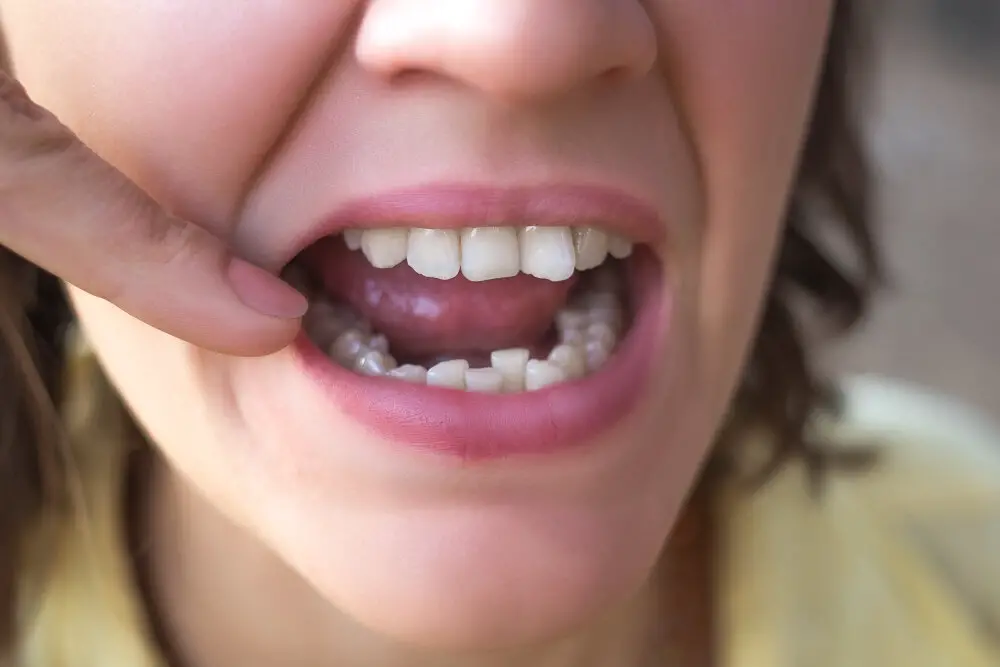
In conclusion, determining the optimal frequency for teeth cleaning is not a one-size-fits-all answer. It depends on several factors such as individual dental health, oral hygiene habits, and medical history. However, visiting the dentist at least twice a year is recommended for maintaining good oral health and preventing dental problems. Regular dental check-ups not only ensure early detection of dental issues but also help in the prevention of gum disease, cavities, and other dental problems. Therefore, it is essential to prioritize dental visits and make it a part of our routine to ensure a healthy and bright smile.
